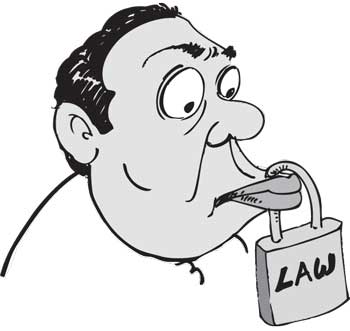Reply To:
Name - Reply Comment
With the new national unity government headed by President Maithripala Sirisena and Prime Minister Ranil Wickremesinghe committed to building harmony and peaceful co-existence among communities in Sri Lanka it should be ensured that hate speech is not accomodated.

After the general elections on August 17, and in a TV interview on state television on Thursday it was revealed that the government was planning to first introduce mechanisms to prevent hate speech in parliament if the speaker believes that a speech being made by any MP could provoke racial or religious conflict. In such a situation the Speaker could stop that speech. This would be in line with the new national policy of promoting the Sri Lankan identity with diversity being protected. However, coming up with the criteria of what constitutes hate speech in Parliament could again lead to a debate in itself.
By way of example we could reflect on the fact that Kigali, the capital of Rwanda is regarded as the safest city in Africa today. Twenty years after the racial genocide in which more than 800,000 people were slaughtered, Rwanda has transformed itself into a peaceful and prosperous nation, according to syndicated Irish writer Padraig Colman who regularly analyses events in Sri Lanka. He says that in Rwanda in June 1983, a new radio station called RTLMC (Radio-Television Libre des Mille Collines) began broadcasting. Drunken presenters found a large receptive audience of resentful thugs. David Yanagizawa-Drott, a Harvard political scientist, estimates that nine percent of the deaths in the genocide, forty-five thousand Tutsis, can be attributed to incitement by Radio RTLMC.
According to a report by the Centre for Policy Alternatives (CPA), hate speech is a particular problem on the internet in Sri Lanka. The CPA report says that out of a population of 21 million, there are more than 2.3 million users of social media, the majority of them male. Social media provide low risk, low cost and high impact online spaces to spread hate harm and hurt against communities, individuals or ideas.
According to former civil servant R.M.B Senanayake, a peace activist and a member of the National Peace Council, the resolution of problems facing the Tamil people have run on into opposition from 1956. Firstly there was opposition to the Bandaranaike- Chelvanayakam Pact in 1958 and the Dudley-Chelveynayakam agreement of 1965. There were also the K.M.P Rajaratne and a few other politicians who opposed rectifying any grievances of the Tamil people.
In the same manner hate speech on the other side of the divide led to the emergence of terrorism propelled by the separatist speeches made by Tamil politicians at that time. This ultimately led to a senseless war which resulted in the deaths of a large number of innocent people on both sides of the divide.
Recently it is alleged that the previous regime had allowed organized groups to stir up emotions against certain sections of the society. All these campaigns stirring up hatred is due to the lack of a law which curbs hate speech although there is a provision in our Penal Code.
The freedom of expression is one of the main fundamental rights in a democracy. But an equally hallowed precept is that our rights are linked to our responsibilities to the extent we fail in our responsibilities to that extent we forfeit our rights. This applies to all key areas including the foundation of building a new Sri Lanka based on a Sri Lankan identity with unity in diversity. As we have often said before the time has come for all people of goodwill to protect and preserve diversity and social harmony.